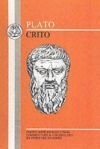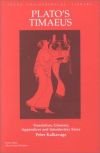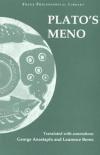
...
Unknown
《高尔吉亚篇》为柏拉图离开雅典前所写的最后一篇对话录。高尔吉亚与苏格拉底在篇中争辩有关智士与哲学家的问题。智士学派秉持相对主义,认为雄辩术能够补足人类知识不足之处,柏拉图则是提出了一个超越性、完美的知识。为了要接触到更高的真理,哲学家必须依靠不断地辩论对话。柏拉图认为雄辩术,是对话的变形,将创造出错误的信仰并伤害自身的灵魂。 …

...
Unknown
《理想国》又译作《国家篇》、《共和国》、《王制》,是古希腊哲学家柏拉图在大约西元前390年所写成的作品。它以苏格拉底为主角,采用对话体的形式,共分10卷,其篇幅之长仅次于《法律篇》。 《理想国》译本极多,英译本中最有名者为Benjamin …

...
Unknown
克力同篇为古希腊哲学家柏拉图所写的一篇著名对话,内容为苏格拉底与其追随者雅典富人克力同的对话,两人谈及政治责任的根源及本质。对话发生于苏格拉底的申辩后,当时苏格拉底因蛊惑和不虔诚罪名遭判死刑,克力同于此篇对话中试图说服苏格拉底逃离监禁流亡。 …
657076510828205891135370135381229113273120475532319839

 English
English Español
Español Deutsch
Deutsch





